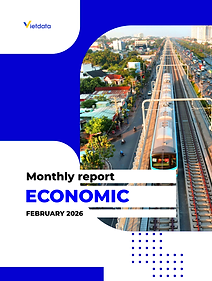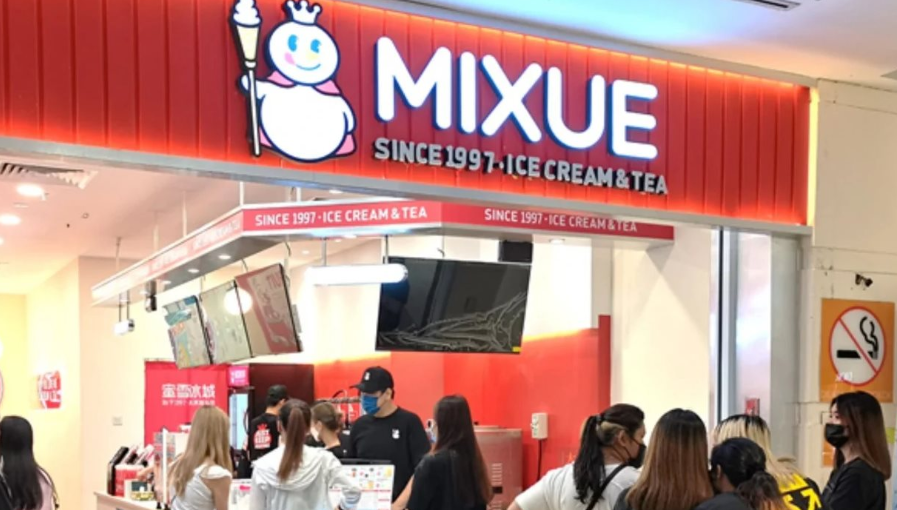Sustainable development trends in the food and beverage industry (F&B)
- Aug 14, 2023
- 4 min read
Many F&B companies are directing their research and development activities towards greener technologies, more sustainable processes, and products;55% of F&B business leaders said they have increased investment in the environment.

55% of leaders at Food and Beverage (F&B) businesses increase environmental-related activities. The F&B industry also ranks third in the total global sustainability score.
These figures show that the trend of sustainable development is increasingly fast and effective in F&B businesses.
F&B industry in the global challenge called "climate change"
Food and Beverage (F&B) is one of the largest industries and is closely related to the lives of billions of people around the world.
The Business Research Company's F&B research report released in January 2023 said that the F&B market is expected to recover from the "Black Swan" event - COVID-19 and the scale is expected to increase to 9,225.37 billion USD by 2027 with an average growth rate of 6.3%.
In terms of sustainable development, F&B is also one of the leading industries.
According to research by ESG consultants EcoVadis over 46,000 companies, the F&B industry has a score of 48.9 - among the Top 3 industries with the highest scores for Environmental Issues and overall sustainability scores, together with the Construction and Finance, Legal, and Consulting industries.
In addition, the F&B industry is easily affected by climate change. Climate change in the form of hurricanes, floods, and fires... is a risk for F&B companies, disrupting supply chains, and reducing raw material supply. This motivates the F&B community to direct production and business activities according to a sustainable strategy.
Around the world, many F&B companies are directing their research and development (R&D) activities towards greener technologies, more sustainable processes, and products; 55% of F&B business leaders said they have increased investment in the environment.
BrewDog has invested £12 million in a production system that converts waste from the brewing process into bioenergy, thereby providing energy for the plant, transport vehicles, etc., as well as reducing consumption water intake.
According to BrewDog's sustainability report, from 2016 to 2021, this beer business will reduce its electricity use by 43% per HL, and reduce water/HL by 55% (HL: hectoliter, equivalent to 100 liters). Or candy company Ferrara aims to make all packaging 100% reusable, recyclable, or compostable by 2025.
More and more brands are reusing food and by-products from the manufacturing process.
For example, Wheyward Spirit uses whey from the cheesemaking process to craft wine; and ReGrained use grain left over by breweries to create ingredients for snack bars and chips.
This trend has also spread to restaurant chains and small businesses such as limiting the use of plastic utensils, replacing plastic boxes with environmentally friendly materials...
The steps of Vietnamese businesses
In Vietnam, F&B is one of the industries with an important role and great potential for development.
According to Euromonitor research published earlier this year, the value of Vietnam's F&B market in 2023 is expected to increase by 18% compared to 2022, reaching a revenue milestone of about VND 720,300 billion.
Experiencing the tumultuous period due to the pandemic along with the trend of consumers appreciating green-sustainable products, F&B businesses in Vietnam have also continuously transformed towards sustainability along the entire value chain. manufacture.
Sustainable development trends in the industry are also constantly updated and developed every day, such as the use of vegan and organic raw materials, sustainable farming, waste reuse-recycling or excess products from the production process measures to limit the use of plastic and reduce packaging in general, to reduce food waste...
For example, Vinamilk - the F&B brand with the highest value in 2022 (according to Forbes) - continuously invests in green and sustainable technologies and solutions in the system of farms and production plants, showing commitment and efforts with a sustainable orientation in the strategic and long term.
Currently, 13 farms and 10 factories of Vinamilk have installed solar energy, in parallel promoting green energy such as Biomass, CNG (at the factory), and Biogas (on the farm).
At the plant, 87% of energy from fossil fuels has been replaced by clean, green energy from Biomass, CNG; 15%-20% of the electricity used is harnessed from solar energy.
Vinamilk also built a model of ecological dairy farm Green Farm, Organic Organic, practicing dairy farming in the direction of sustainable agriculture.
In parallel with the measures to reduce greenhouse gas, Vinamilk implemented and completed planting 1 million trees in Vietnam. Next, is the tree-planting activity towards Net Zero, a 5-year period from 2023 to 2027.
Most recently, this enterprise also announced that Vinamilk Factory and Dairy Farm in Nghe An has been certified by the British Standards Institute-BSI (UK) and Bureau Veritas (France) to be carbon neutral according to PAS2060: 2014.
100% of Vinamilk's stores nationwide are using bags made from recycled plastic, plastic spoons, plastic straws, and shrink films are being cut down by this business on a roadmap.
It can be said that Vinamilk's story is a typical example of an F&B enterprise in the green transformation wave, clearly illustrating the inevitable shift of this important field in Vietnam and around the world.
Net Zero - Difficult problem, but impossible not to solve
Deloitte warns that climate change is affecting food supplies by reducing crop yields, with every degree Celsius increase in global average temperature could reduce yields of wheat by up to 6%, rice by up to 3.2%, corn by up to 7.4%, and soybean up to 3.1%.
It should also be recognized that in addition to solutions that businesses can actively implement, many issues about controlling greenhouse gas emissions are beyond the control of F&B businesses.
An estimated 80% of emissions fall within Scope 3 (Scope 3: consumption, transport, investment, etc.), for example when consumers dispose of food before consumption or improperly dispose of packaging. determined.
Therefore, in parallel with reducing greenhouse gas from the inside, businesses also actively implement many programs to create an impact on the community, form awareness, and green lifestyles to the community such as classifying, recycling waste, or planting trees.
In this process, consumers' preference for green, sustainable products; investor's decision to choose the ESG stock-enterprise line to pour capital; or the state, the government to develop policies and legal corridors to create conditions for promoting sustainable development - will be the driving forces to promote the transformation process of businesses pursuing development goals. as sustainable as Net Zero.
(Vietnam+)











Comments